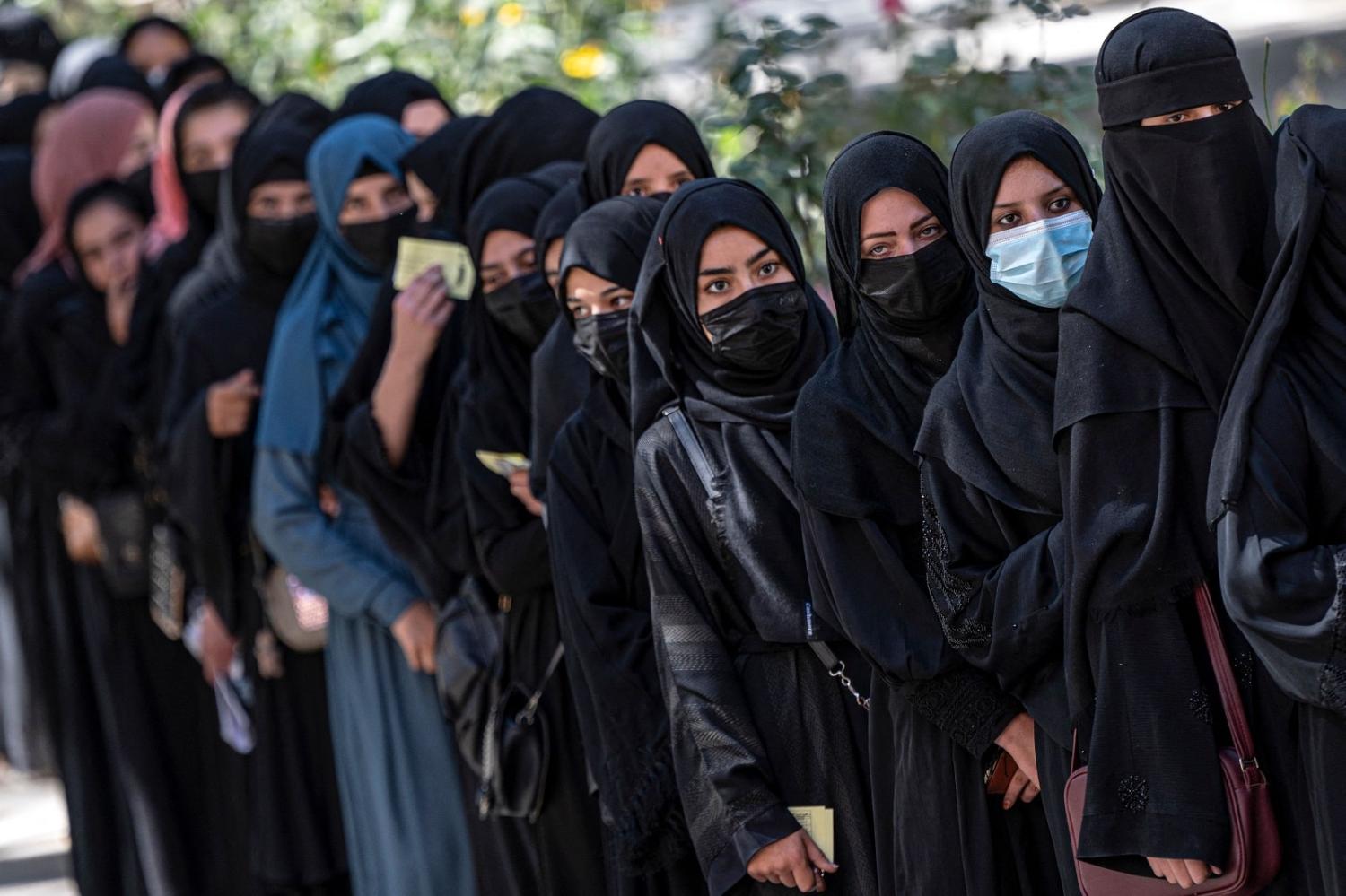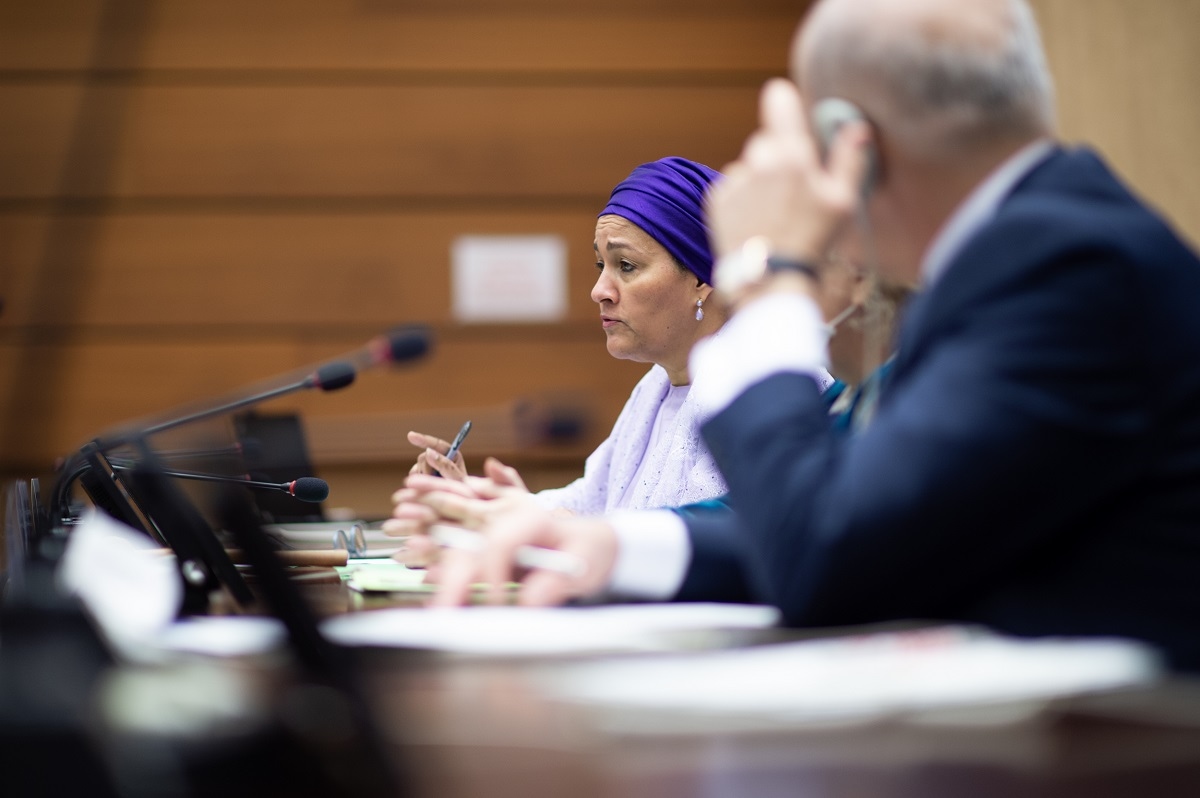HILMAND DEHSABZI

For more than 500 days, the daughters of Afghanistan have been the only girls in the world to be systematically denied access to higher education – again. Global apathy is now excruciatingly evident after two decades of promising that Afghan girls would not be forgotten.
In the chaos following the collapse of the Afghan Republic in August 2021, including the disastrous withdrawal of US and other troops and the Taliban’s takeover of power, public institutions ceased operating due to the potential for civil war. A month later, as the new reality sunk in, the de facto Taliban authorities announced that elementary schools for girls and all grades for boys would resume. There was no mention of girls’ secondary schools.
Despite both local and international outrage, a sliver of hope endured as female university students were allowed to return to campus – albeit in gender-segregated classes. The Taliban assured that the suspension of female high school students was temporary and would be reversed in due course.
On the very morning that teenage girls were lined up across the country to re-enter school, an urgent edict from the Supreme Leader rescinded the directive, ordering thousands of teenagers to return home.
As the new school year began in March 2022, girls’ secondary schools were set to reopen across Afghanistan. It was a true test for the allegedly reformed Taliban, who were promoted as having learnt the mistakes of their first period of rule in the 1990s. However, on the very morning that teenage girls were lined up across the country to re-enter school, an urgent edict from the Supreme Leader rescinded the directive, ordering thousands of teenagers to return home. By December 2022, the Taliban’s Minister of Higher Education had announced the suspension of university for females – again with the disclaimer of “until further notice”.
Fury has raged throughout Afghanistan. Scores of women protested outside the education ministry in Kabul, facing arrest, as did students in the Northern provinces of Badakhshan and Takhar. Schoolgirls took to the streets of Southeastern Paktia province. Male academics at Kabul University resigned from their jobs in protest. In Eastern Nangarhar and Southern Kandahar, male students and academics stormed out of their campuses in solidarity with their female classmates.
 In January, UN Deputy Secretary-General Amina J. Mohammed led a delegation to persuade the Taliban to reverse its crackdown on female education (UN/Flickr)
In January, UN Deputy Secretary-General Amina J. Mohammed led a delegation to persuade the Taliban to reverse its crackdown on female education (UN/Flickr)Afghanistan has spent the last century politicising modern education. It has been long affiliated with secularist Afghans, who have been criticised by conservatives for using modern education to socially re-engineer Afghan society and dilute its Islamic identity. The first girls’ school was opened in 1921 by King Amanullah, whose rapid and ill-timed secularism caused conservative reactionaries to oust him. Decades later, the Afghan communists used modern education as a vehicle to spread their atheistic ideology. Following the 1978 coup, the communists brutally purged the religious establishment and sought the Soviet military to eradicate their conservative opposition. Both Amanullah’s controversial secularism and the communists’ atrocities stigmatised modern education.
The same mistake was made in the last two decades; politicising female education and women’s rights to justify a brutal war that has traumatised conservative rural Afghans.
In January this year, the United Nations’ highest-ranking woman, Amina J Mohammed, led a delegation to persuade the Taliban to reverse its crackdown on female education. As a Sunni Muslim like the Taliban, Mohammed personifies the Islamically mandated right for females to attain an education, juxtaposing the Taliban’s unislamic ruling.
Importantly, the Muslim world must point to the “moderate” elements of the Taliban, who have publicly criticised their Supreme Leader and his reclusive, powerful inner circle’s isolationist trajectory.
Women’s education has become a tool for leverage by all sorts of parties. On one hand, the international community seems to have conditioned the resumption of female higher education in exchange for formal international recognition of the Taliban government, the unfreezing of Afghanistan’s central bank assets, and increasing aid to prevent millions of Afghans from famine. On the other hand, the Taliban are suspected of exploiting the international community’s outrage for leverage at the negotiating table.
This may be advantageous for Afghan women; elements of the Taliban are eager for global diplomatic recognition to prevent becoming an international pariah once again. Afghanistan has a multitude of disputes to resolve after four decades of war. Afghan regimes collapse far too frequently, and female education should not be contingent on that probability. Irrespective of who is in power, undoing the ban must be an urgent short-term priority.
There may be solutions to this century-long dispute. The UN and the Organisation of Islamic Cooperation (OIC) have agreed to host a conference in March 2023 on women in the Muslim world. This is a critical opportunity for Muslim-majority states to emphasise that the Taliban’s restrictions are incompatible with Islam. The OIC issued a communiqué in January 2023 criticising the restrictions on women. While the West would be dismissed as being insensitive to Islamic religious values, Muslim states have the prerogative to use an Islamic framework to pressure the Taliban.
Such a conference is also an opportunity for a state such as Indonesia to demonstrate that modern education can co-exist with traditional Islamic education, and that their mutual integration and compatibility in a national education model could be a precedent to resolving Afghanistan’s ideological conflict.
Importantly, the Muslim world must point to the “moderate” elements of the Taliban, who have publicly criticised their Supreme Leader and his reclusive, powerful inner circle’s isolationist trajectory. Even the leader of the notorious Haqqani network has lambasted the edicts.
With the new school year approaching, there has been no announcement that girls will return. It must not be forgotten that the Taliban has used this tactic before, “temporarily suspending” girls’ education in the 1990s with endless excuses that lasted the full five years of their first rule. The ban was never lifted. Another generation of Afghan girls cannot be patient again.
No comments:
Post a Comment